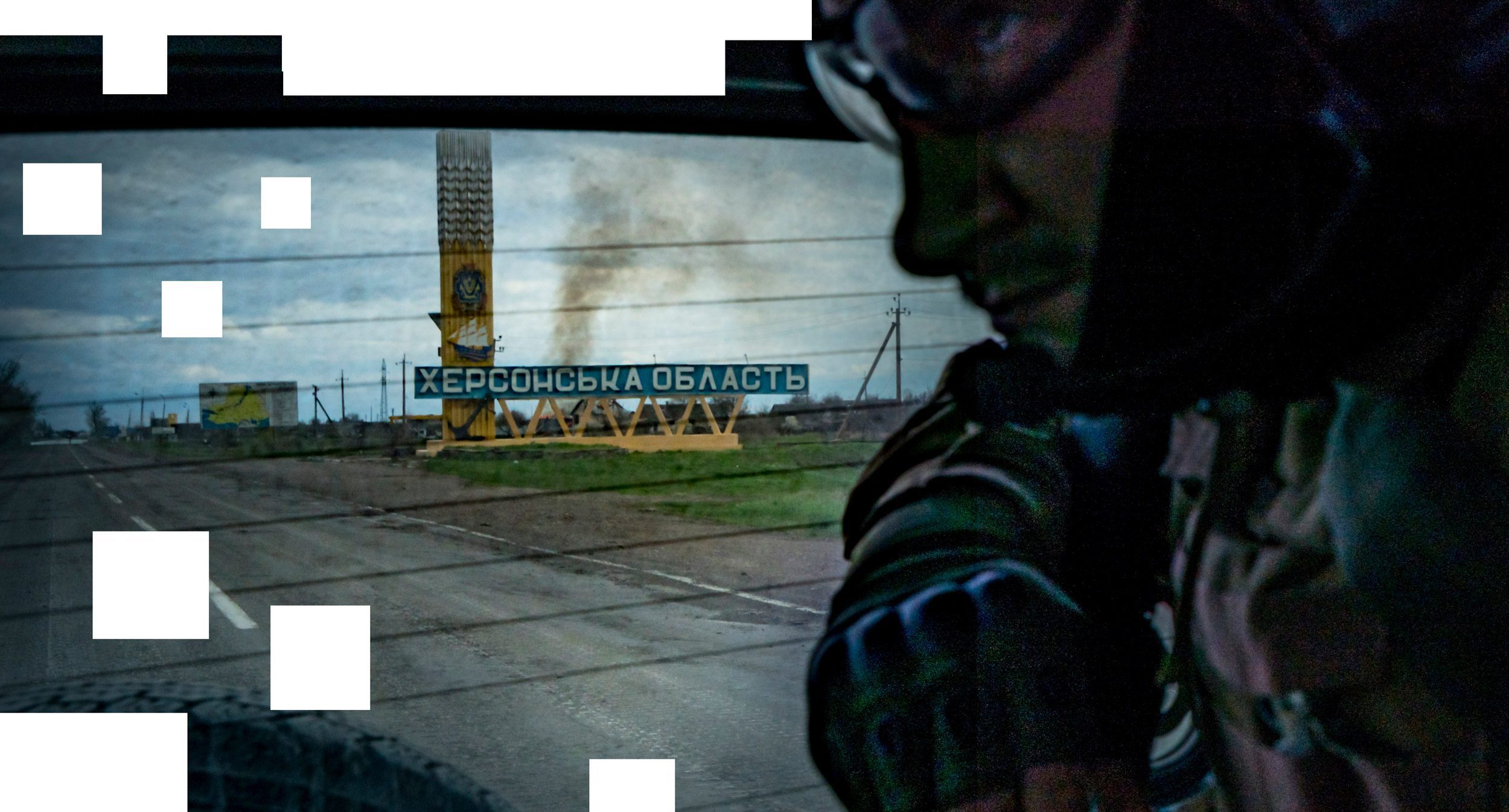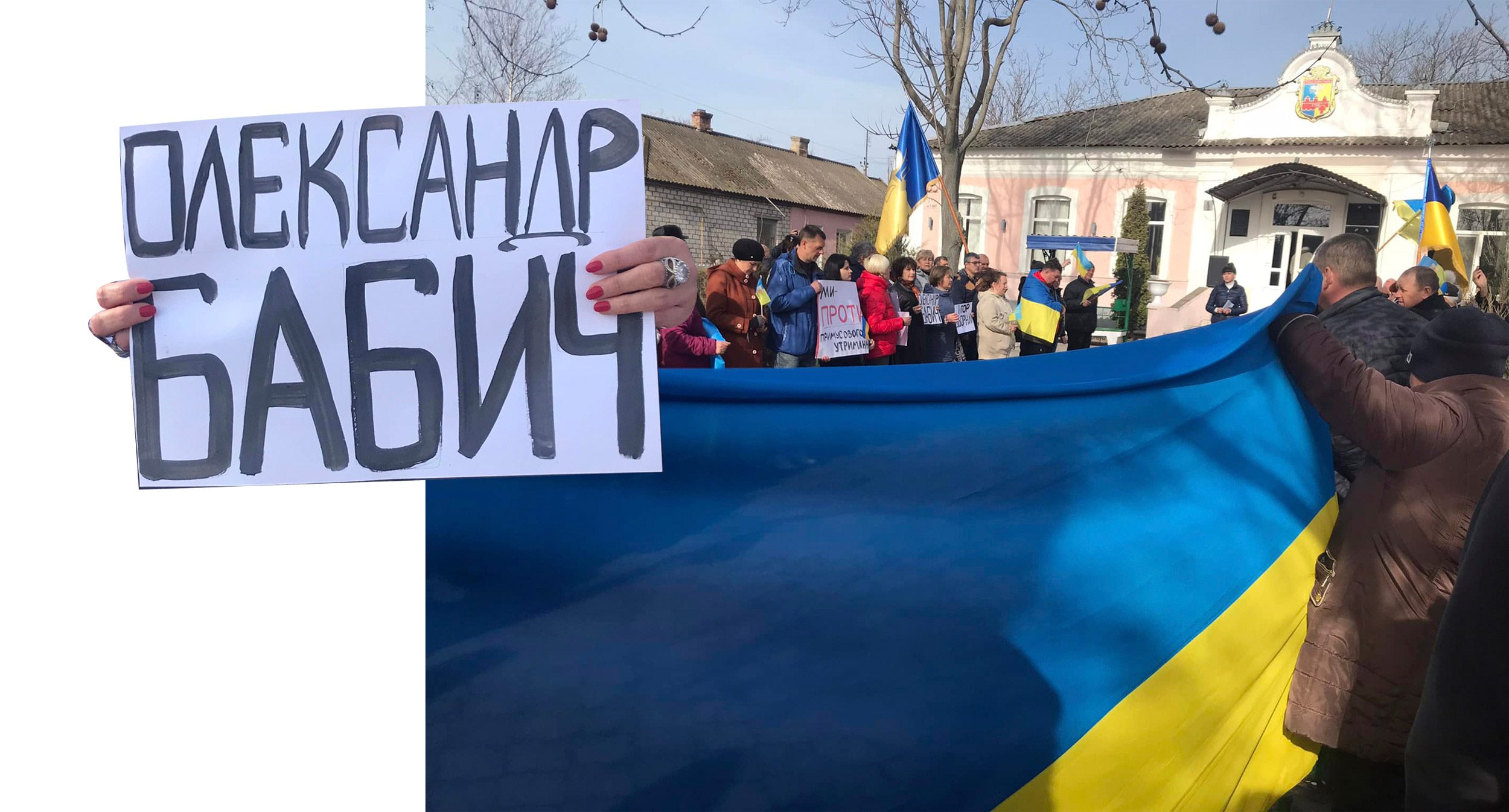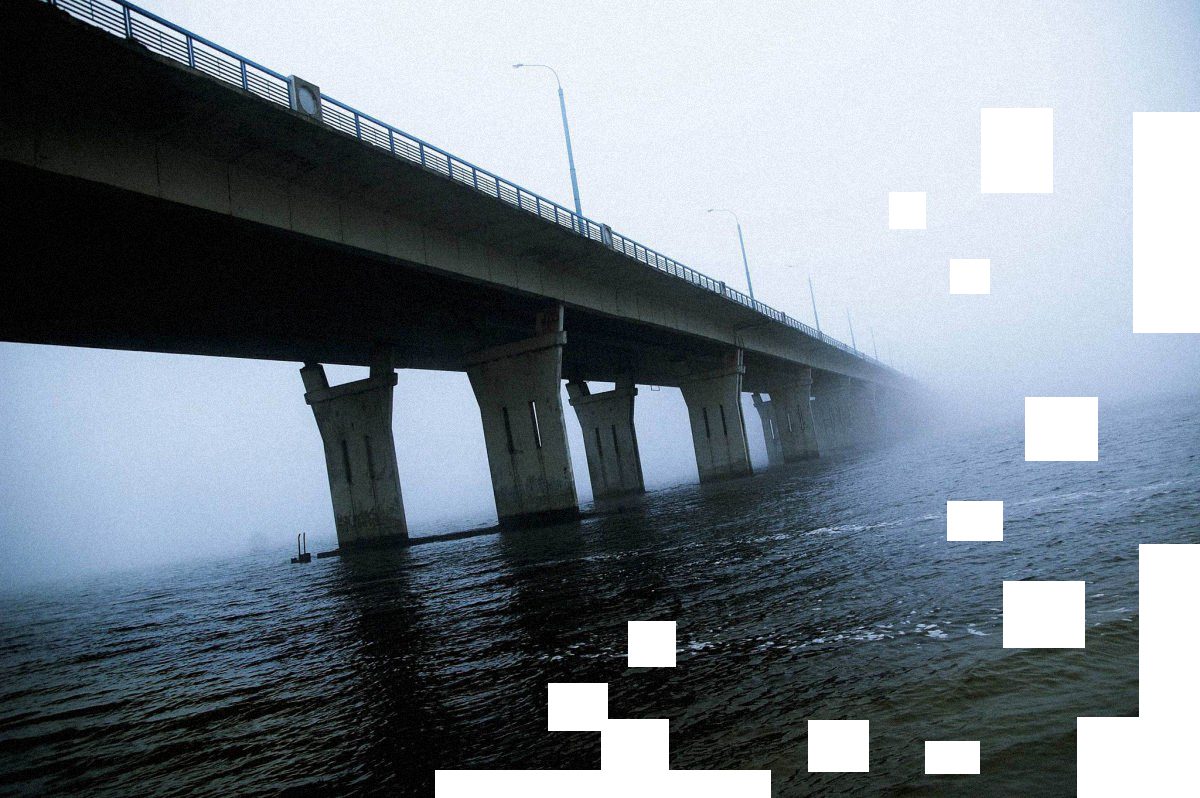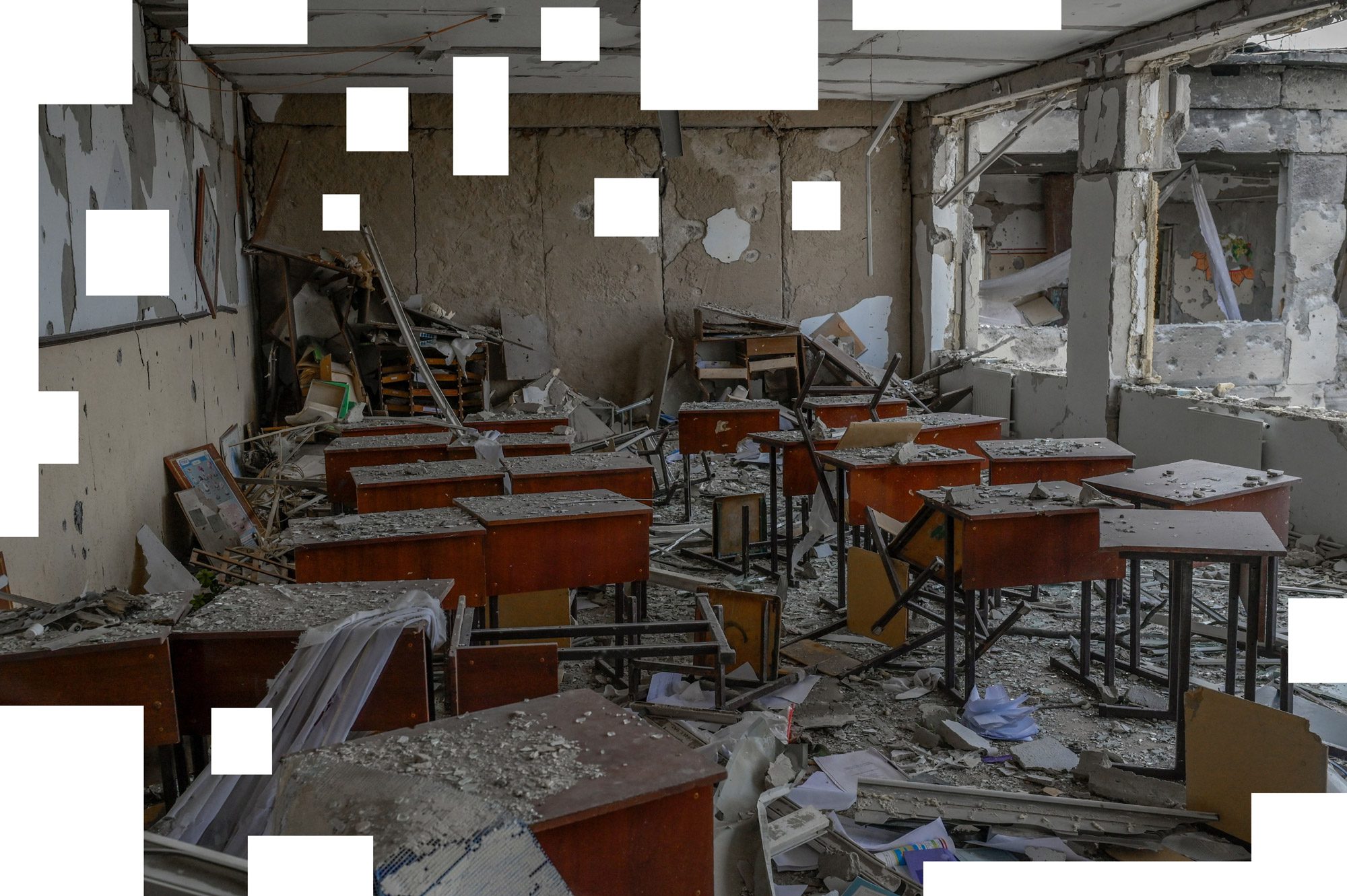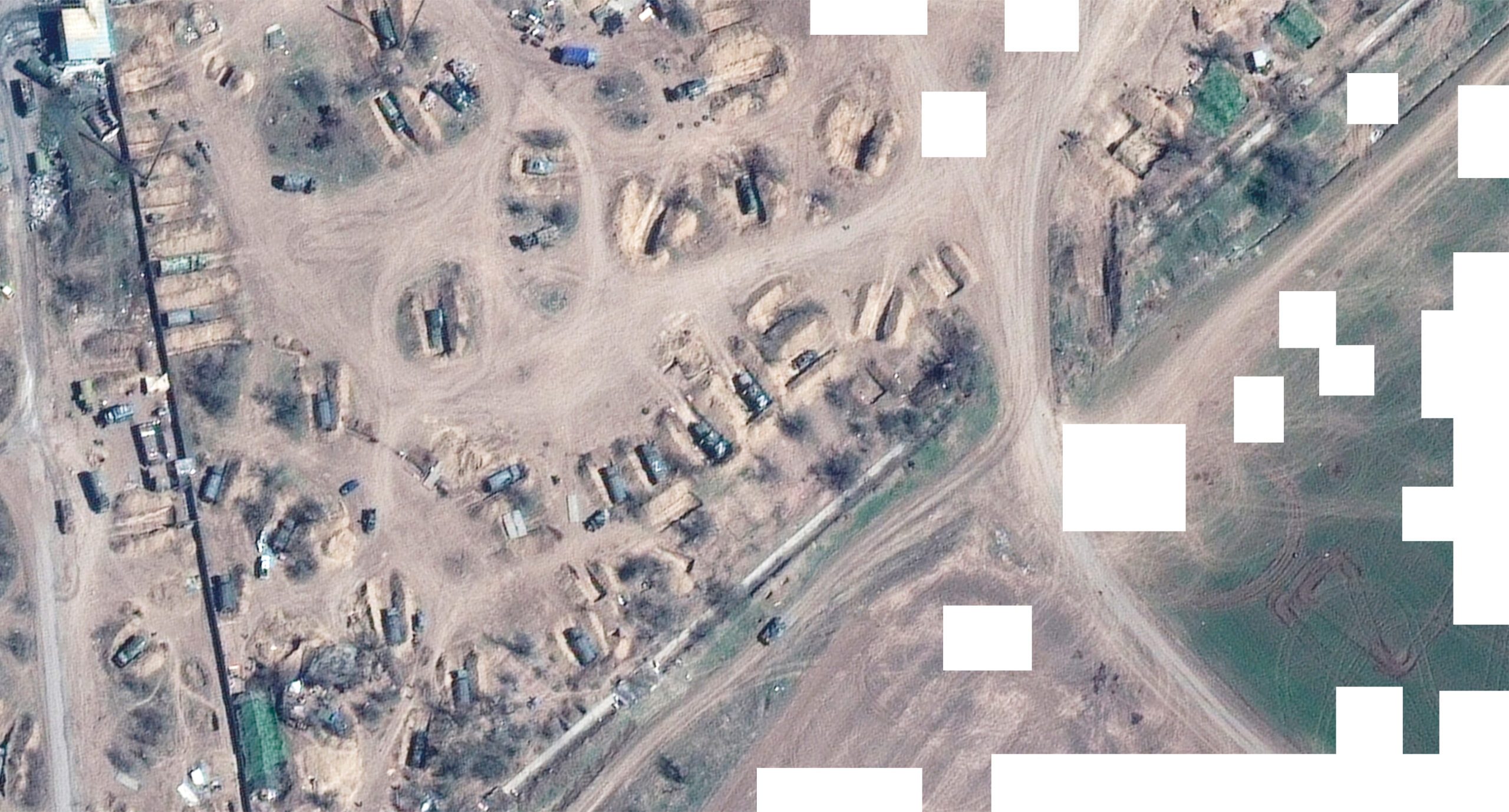Since the beginning of the Russian invasion on February 24, Kherson and neighboring towns and villages have been under occupation. The Kherson region is of strategic importance to Russians, as it provides mainland access to the Crimean peninsula they seized in 2014. There are regular reports from the region about the abduction of activists and journalists held in secret prisons, and the occupiers, despite the presence of city officials in Kherson, are already establishing a dictatorial regime and encroaching on the freedoms of Ukrainians. Zaborona journalist Polina Vernyhor recorded the stories of three Kherson residents about how their lives changed after February 24.
Alisa Zelinska
I recently turned 22 years old. I am originally from Kherson, but I have been living in Kyiv for two years already, I worked as a content manager. A couple of days before the war, I went to visit my mother and grandmother in Hola Prystan, because I felt that there would be a war – everyone was talking about it. On February 24, at five o’clock in the morning, we woke up to a call from my dad, who was in Kyiv at the time. He said they heard air raid sirens there. Here it was still quiet, but by seven o’clock in the morning we heard them too.
There is Antonovsky Bridge in Kherson, which connects the left and right parts of the city. That is where the battle between the Russian and Ukrainian armies began. It’s about 40 kilometers from my house, but we heard explosions and shootings very well.
We first went down to the basement, but it was not equipped at all – its door couldn’t be even closed. We also had an 85-year-old grandmother with Alzheimer’s disease. She was born in 1941, her father and brother died in the war. At first we didn’t tell her that the war had started – we were afraid. But when it came time to go down to the basement, we tried to talk to her because she was very scared. This was probably the worst thing: we could cope with our emotions, but a person who doesn’t understand what we want from her, why we sit in a dark basement without light and water – she can’t take control of herself.
The Russians did not enter Hola Prystan for a long time, they were driving on a bypass road nearby, so we saw the equipment they were pulling from the Crimea and immediately passed the information on to Kherson so that they would know that the enemy was coming. In the first days, 200-300 cars drove daily. It was scary. Russian military were located in all villages, in the woods – absolutely everywhere. In the first days, the occupiers took their wounded to the city hospital, and doctors could not refuse.
In the third week, about 500 Russians came to [our city] and settled in a sanatorium. They walked around the city, went to our dentist to treat teeth problems. But, fortunately, none of the civilians were touched. However, [March 28] our mayor Oleksandr Babych was abducted – no one still knows what happened to him.
-

Peaceful rally near Hola Prystan City Council in support of residents abducted by Russians, March 31, 2022. Photo: Alyona Lytvynenko / Facebook
The occupiers went from house to house, looking for ATO veterans, hunters. They didn’t come to us, but they visited my friends and acquaintances. I think it’s because none of my relatives served in the military. The friend has a military relative – the occupiers came to him, but no one was home. They broke down the door, searched the house, returned several times. They definitely had a base of those involved in military affairs. Either one of the locals provided them with information, or they stole the lists somewhere in the City Council. My mother works at the school, and they came there to look for a teacher who took part in the anti-terrorist operation. They knew everything about him, about his whole family.
In general, the situation was not as bad as, say, in the Kyiv region. I heard from acquaintances that Russians stole food from stores, tried to break the door to the store with appliances, but nothing came of it. In general, it seems that they are really guarding Kherson and trying to pretend to be good “defenders”. But at the same time, activists are being abducted. Many people are taken away at rallies, some have not been returned yet, and it is unknown where they are being taken. We went to such rallies several times in the first couple of weeks. There were many people and cars. But over time, fewer people came out. And the fewer people come out, the easier it is to disperse them.
Mobile communication in Kherson region is poor. Talking about the wired Internet – at the beginning of the war they tried to fix it, and then abandoned the idea. Situation with food is also very difficult. As far as I know, humanitarian aid has never been allowed into the region. If products are imported, then only from the Crimean side. Some of the locals go there, buy products and sell them in our market. Of course, at exorbitant price. But people need to survive, so they buy. Unlike Kherson, the Russians did not distribute their humanities in Hola Prystan. There are some locally produced foods. There are a lot of fish on the shelves, there are radishes and cucumbers. Most likely, there is no milk already, and meat is very expensive.
The queues near shops are huge. I had a record – 9 hours in line to the supermarket. My mom and I got up at five in the morning and stood for two hours. We tried to buy something, but the supermarket did not give everything you want – only one unit of goods for one person.
In the first weeks I had no idea to flee the town – I did not want to leave my mother and grandmother. In addition, there was no opportunity as such. The occupiers were everywhere. We thought it would be over soon. But when everyone realized that it would be a long time, I understood that it would be very difficult to exist in the occupation without work, money and food supplies, which are gradually running out. So on April 5, I told my mother I wanted to go. She was sad, but she knew it would be better for me.
Few of my acquaintances wanted to flee, but my friend’s family was just about to leave. I went to Kherson for a couple of days, took very few things with me – one T-shirt, some pants and a laptop – so I packed up quickly. My mother and I tied red strings on each other’s hands – for good luck and protection from the Russian military. We hugged, kissed, said that we love each other, and I left. It’s hard to realize that this could be for a long time, so I try not to take it that way.
-

Consequences of Russian shelling in the village of Zeleny Hai, between Kherson and Mykolayiv, on April 1, 2022. Photo: BULENT KILIC / AFP via Getty Images
We did not understand what fate awaits us; we were afraid of every oncoming car. Antonovsky Bridge was the first place where we saw the Russian checkpoint. The girls had their nails checked – they probably thought we were snipers. The men were asked if they had fought. It was necessary to come up with a legend why we are leaving, because they just might not let us go. My friend’s grandmother was with us, so we said we were taking her to the hospital in Odesa.
The first checkpoint was the worst, because it was our first experience of communicating with the occupiers. Then there were the so-called DNR and LNR checkpoint, but there we were not asked anything in particular. They looked as if their mother had dressed them haphazardly. Everyone had a different uniform, it looked funny. Other checkpoints seemed more threatening: the soldiers were in special equipment. They set up checkpoints near the wrecked civilian cars, apparently to show off. On the roads we saw broken vehicles – ours and Russian. For the first time in my life I saw a caterpillar from a tank – it turned out to be huge.
The scariest moment was when we were stuck in a traffic jam. For two hours we stood right in the field, because where we were going, the battle began. Grad missiles were flying over us, and a convoy with Russian equipment was driving past us – tanks, armored personnel carriers. At one point, the muzzle of the tank was aimed directly at our windshield. There were unexploded shells everywhere on the roads: a step to the left, a step to the right – and that’s it, you’re dead. We drove through that area for a very long time, but in the end everyone got out alive.
The most unpleasant checkpoint was with the Buryats. They were drunk, couldn’t stand on their feet because people gave them vodka, beer, cigarettes to let them through. They drank it right away, on the spot. We were standing in line, with five cars in front of us. One Buryat approached us and said: “If they ask, say that I checked you.” And he let us through.
Now I’m in Kyiv. We drove here for three days, although earlier it took 8 hours. I still don’t seem to realize what I’ve been through. I understand that people in Mariupol, Bucha or Irpin had much worse conditions, but this is my experience. I realized that having one jacket and pants would be enough for me for the rest of my life. I started to really enjoy breakfast, lunch, dinner. I was very surprised to see that there are so much food in supermarkets in Kyiv, because it seemed as if I hadn’t seen it for a year.
Svitlana
I am now 42 years old. Before the war, I was a representative of a medical equipment distribution company, working with pharmacies. When it all started, we couldn’t work. Pharmacies worked, but there were huge queues. So far, the company is gradually paying us money, supporting us. My husband was a taxi driver, but now he doesn’t work and has no income at all.
On February 24, we were awakened by a call from a relative who said that the war had begun. Some immediately gathered their spirits and left, but I didn’t understand anything because I was under stress. We are a hundred kilometers from Crimea, my parents are 40 kilometers away. Somewhere in the afternoon they had explosions nearby, then the connection disappeared, it was down for about three weeks.
Fighting began in the afternoon in Kherson. We live at the entrance to the city, opposite of Oleshky. It is not far from the Antonovsky Bridge, which can be used to move to Crimea. I heard a rumble and went up to the second floor of the house, because from there you can see the bridge and the river. I looked out the window – and there were a dozen black helicopters. They flew towards the bridge, started firing shells, reeds caught fire, and set fire to nearby cottages.
-

Antonovsky Bridge, 2005. Photo: Vitaly Danylchenko / UNIAN
The battles on the bridge lasted for three days. A military unit was blown up near Kherson, not far from us. We were sitting in the basement and listened to explosions. We were lucky because the house is located a couple of kilometers from the bridge. Those who lived closer had their homes damaged. There were a lot of mutilated cars on the bridge.
On the third day, the rocket hit an old building in the woods near us. There used to be a police post, but long abandoned, there is no one there. We thought that the roof of our house would be blown off by the blast wave. A school friend who lives in Oleshky called me in hysterics. She was able to be taken across this bridge. She said that they were riding on corpses, that it was terrible there. Acquaintances said that the corpses laid there for a long time and people themselves began to bury them in the woods.
The same day we left our house to visit relatives who live in the city center. When the fighting ended, the Russians entered Kherson. The locals tried to deal with them, expel them from the city, and went out to protest. They went to the Russians with bottles of some flammable substance, and in response they were simply fired upon. Many came under fire. On the outskirts of Kherson, several houses were hit, and one person was shot dead in the yard.
There was looting. When the Russian army entered, rockets hit the Fabrika shopping center. It caught fire, but Russian troops did not let firefighters in, and the whole building burned down. Now some shops are open, but the shelves are actually empty, there are not enough goods.
-

Consequences of Russian shelling in the village of Zeleny Hai, between Kherson and Mykolayiv, on April 1, 2022. Photo: BULENT KILIC / AFP via Getty Images
In about a month, everyone somehow adapted to life under occupation. People began to move more freely around the city, to sell something. It was not centralized. You come to the market, and there people sell some milk, some meat. There was a large poultry farm in Kherson, so they somehow distributed chickens: they were cut, but not processed. My sister lives near the market, she received chickens several times. Somehow they got 10 eggs while they were there. It is difficult to buy eggs now. Today the man found them by 70 hryvnias (2.3 USD) for a dozen.
There is no fuel either, but people are bringing from somewhere. There were some leftovers and it got to the point that gasoline costed 100 hryvnias (3.3 USD) per liter. One week ago, at a private gas station, 95th gasoline was sold for 55 hryvnias (2 USD) per liter.
There is no money in ATMs. Some banks are working, giving out money, but the queues are miles away. Some people started cashing out for interest. The fee for such a service is from 3 to 6 percent, depending on the amount. Payment everywhere goes only in hryvnias, nobody accepts rubles. Even on March 26, the Pension Fund of Ukraine sent pensions in advance in hryvnias. But those who receive their pensions from postmen were left without money, because there is no money in Ukrposhta. The educational process is underway, children are learning online – just like in quarantine. However, not everyone has the Internet, and sometimes the connection disappears altogether.
Our guys once went on protests against the occupiers. At one point, the Russians just started shooting them in the legs. Our people stood for about an hour and went to the Park Slavy, and Russians passed by and aimed their rifles directly at people. It seems that someone was even injured. All our Ukrainian flags were torn down and tricolors were put up.
We don’t go to the street, we don’t walk anywhere. We live in a private house, so we can at least go outside and breathe the air. We move around the city by car. Once I saw soldiers near a supermarket: my daughter and I went to the bakery to buy bread, and there they arrived in their armored personnel carriers with machine guns. My daughter was scared.
There are no police here – no one is left. Only the mayor and members of the Administration who make sure that the city has water and electricity, the garbage is removed, and communications work. We had a water break in the street, then they arrived immediately and repaired everything. Relatives said that they had some kind of bag under the office. When they called the State Emergency Service, Russian police arrived.
To leave the city, you have to stand in line at checkpoints. Minibuses are passed without queuing, now many of our people move – they are somehow selectively checked, especially men. So when we went to my parents, we stood for three hours. Russians checked our documents, looked at the car, asked where we were going and for what purpose. We passed 10 checkpoints in 60 kilometers – and were checked at each one.
The first humanitarian aid was distributed on the square – no one took it. Then they started distributing it near the Yubileiny cinema and the locals were already taking it. People approached, asked what they were doing and that they should be ashamed to accept handouts from the occupiers. And the soldier said: “Get out of here, or I will shoot in your legs.” In our area near the store, Russians also handed out the aid, then a few days later a video was released on Crimean TV: “Kherson is returning to normal life, the police control the order” – like everything is fine with us. And such a shooting from a drone: our area, Russians handing out humanitarian aid, oranges, someone comes up and takes it – everything looks good, although, of course, no one takes pictures of places where everything is damaged.
-

Kherson airfield, April 7, 2022. Satellite image (c) 2022 Maxar Technologies
Our suitcases have been packed since the first day, but there is simply no official green corridor, people leave at their own risk. Our army seem to be pushing the Russians closer to Kherson. There is a direct road from us to Chornobayivka along the front line, and when people used to leave, they said that there were eight Russian checkpoints, and now there are four left. But it’s just scary to leave. Acquaintances were leaving through Stanislav and the shelling began – they quickly returned to Kherson. Maybe some situation will happen when you will need to leave quickly. We are ready from day one. There are people who overcame this fear, gathered on the first day and left, but we can’t. It’s terrible. We hope that Russians will go away.
Vitalina (name changed for security reasons at the request of the heroine)
I’m a mother of two children. I used to bake cakes, but then I was diagnosed with cancer, and I’ve been battling this illness for the last year. Now we are limited to what we have in Kherson clinics.
On February 24, my children’s godmother called us. Her husband works in the SBU, he said that the war had begun. At that time nothing was heard in Kherson. At first we were packing, thinking of running away. We went to our parents’ house and decided not to leave yet. There was an idea to stay in the village with relatives. It is located on the side of Kakhovska HPP. It was one of the first places they captured. Thank God we didn’t go there. It’s awful there now – much worse than in Kherson.
There are also many people who lost their jobs and earnings. But it’s easier for me: my husband has a job, so we have some money. He is a private entrepreneur, he works with my father – we have a small shop in the central market. Our business is related to cars, and people prepare their cars before leaving the city.
When the Russians entered Kherson, we didn’t leave the house for the first two days – it was unclear how they would react, whether they would shoot or not. The first our exits from the house were the runs to the bread shop, because the food was running out.
We went to rallies. We tried to show that Kherson residents are brave and courageous, that we do not want to be some kind of Russia or “Kherson’s People’s Republic”, as they wanted. We protested, shouted slogans “We are Ukraine”. For the first two weeks, they didn’t touch us or shoot in the air to scare us. It was more or less calm until the FSB and the Russian police arrived. They started throwing grenades at the crowd.
When pieces of people and blood scatter, you are afraid for your life. When a huge car comes to your street and a dozen Special Forces officers jump out, it’s not time for rallies. That’s how they came to our neighbor – he is a former ATO soldier. I don’t know what they wanted from him, but they took him out with a black bag on his head. Activists were also taken away. My acquaintance was looking for her brother – he was taken away. He was later released, but no one says what was done to him there – they are afraid. We did not fall into their hands, but the men were taken away from the rallies.
You just realize that you will sit quietly like a mouse, because you have children. You have a life that you value. I’m scared to express my position directly. I can’t be such an activist as I was at the beginning and go to rallies. Then we didn’t feel this fear. Now I’m afraid to speak openly. They monitor social media. I don’t know if it’s true or not that we’re being tapped.
They walk around the city in civilian clothes, disguised. They feel calm and free in any area. They come to the market, buy food, cigarettes. They feel like masters in the city, and we obey, because what is our choice? Unfortunately, there is no one to protect us.
The biggest problem is with medicines. Our local guys are great fellows. At the risk of their lives, they go to Mykolayiv, bring medicine, and distribute it for free. But it’s still not enough. I needed thyroid medicine, I went to the hospital. The queue was crazy, but I got the medicine.
My daughter is 7 years old, and my son is 13. Children already have a lot of fear. When the explosions are heard, she comes to me, holding my hand: “Mom, is it out of the city?”. I say: “Everything is fine, it’s not in the city, they can’t reach us.” I tell it like it is: that Russia attacked Ukraine. She asks: “For what? What have we done? Why are they killing us?” There is a lot of anger, hatred, and aggression inside me that I would not like to pass on to children. But when you see all the injustice, it’s hard to control your emotions and find the right words.
There is less and less faith and moral strength, because everyone is leaving en masse. It’s very painful when they go and say: “That’s it, Kherson will not be the same, Kherson will already be Russian, you will soon have rubles.” You are trying to prove that we will not give up so easily, that we are Ukraine, that we will fight, although you will not oppose the machine gun with your bare hands.
For now we will be here. I really believe that our guys will come after us, that they will protect us. Because we are not used to living like this. We are used to living in a free country.

